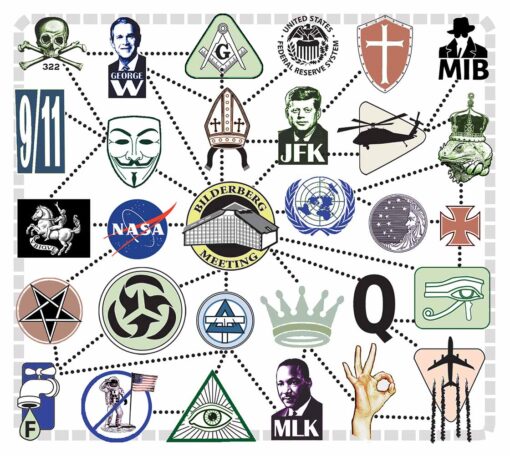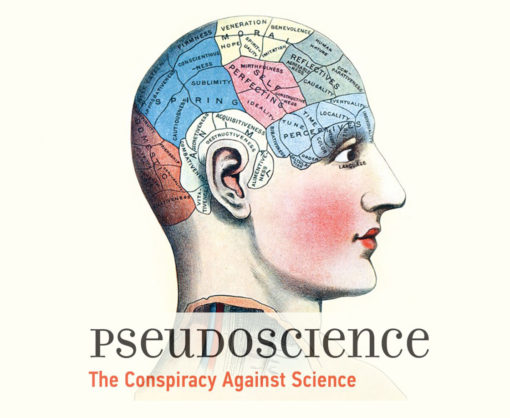patternicity

Alternative archaeologist Graham Hancock has for 40 years been writing bestselling books about the possibility of a lost ancient civilization that existed long before the Egyptians, Hittites, and Babylonians, and now he hosts a wildly popular Netflix documentary series called Ancient Apocalypse in which he presents his theories about what destroyed this lost civilization, which he suggests is described in the legend and myth of Atlantis, in stunning cinematographic beauty. But is it true? In this analysis of the documentary…

What is a conspiracy, and how does it differ from a conspiracy theory? Michael Shermer explains who believes conspiracy theories and why they believe them in the following essay, derived from Lecture 1 of his 12-lecture Audible Original course titled “Conspiracies and Conspiracy Theories: What We Should Believe and Why.”
Dr. Anondah Saide and Dr. Kevin McCaffree examine whether political party identification is associated with tolerant attitudes towards individuals with different political views. ALSO, Michael Shermer explains who believes conspiracy theories and why they believe them in an essay derived from a lecture on conspiracies and conspiracy theories.

In this article, originally published in Quillette on Halloween, October 31, 2019, Dr. Shermer argues that patternicity, agenticity, pessimism, the negativity bias, and the Second Law of Thermodynamics provides a deeper explanation for why conspiracy theories are so popular and enduring. The article is based on Dr. Shermer’s new course from Audible and The Teaching Company on Conspiracies and Conspiracy Theories.
In Science Salon # 90 Michael Shermer speaks with world renowned biological anthropologist Mel Konner who examines the nature of human nature, including (and especially) in his new book on the nature of religiosity. PLUS: In an article originally published in Quillette on Halloween, October 31, 2019, Dr. Shermer argues that patternicity, agenticity, pessimism, the negativity bias, and the Second Law of Thermodynamics provides a deeper explanation for why conspiracy theories are so popular and enduring. The article is based…

After his appearance on the Joe Rogan Experience podcast # 961 with Graham Hancock and Randall Carlson, Michael Shermer devoted a special issue of Skeptic magazine (22.3) to Hancock’s theory that an ancient lost civilization predates by tens of thousands of years all other known ancient civilizations. The follow is Dr. Shermer’s account of the show and a refinement of his notes for why he is skeptical of Hancock’s theory.

What is it about the human mind that so effortlessly translates natural events into messages from another realm — even despite our best attempts to deny that there’s any message in them at all?

What is it about the human mind that so effortlessly translates natural events into messages from another realm — even despite our best attempts to deny that there’s any message in them at all?

Harriet Hall, M.D. (aka the SkepDoc) reviews Pseudoscience: The Conspiracy Against Science by Allison B. Kaufman and James C. Kaufman.

What is a conspiracy theory, why do people believe in them, and why do they tend to proliferate? Why does belief in one conspiracy correlate to belief in others? What are the triggers of belief, and how does group identity factor into it? How can one tell the difference between a true conspiracy and a false one? … Download the free PDF
In this week’s eSkeptic, Michael Shermer reviews Antifragile: How to Live in a World We Don’t Understand, by Nassim Nicholas Taleb (2012, U.S. edition published by Random House, subtitled “Things That Gain from Disorder”). Order the hardcover book or the Kindle Edition. This review was originally published in Nature, Nov. 21, 2012.
On June 29, 2011, Michael Shermer published an article in eSkeptic on the number 19 and the attempted ambush interview that he turned into a lesson in patternicity (the tendency to find meaningful patterns in both meaningful and meaningless noise) and numerology, calling for our readers to chime in with their own examples of such patternicity. In this week’s eSkeptic, we present 19 of the more intriguing, delightful, instructive, and funny responses from that blog.
In this week’s eSkeptic, Michael Shermer recounts his experience of a recent interview-turned-ambush by a film crew who claimed to be making a documentary about the arguments for and against the existence of God. The interview provides an excellent background for a lesson in what Shermer calls patternicity: our tendency to find meaningful patterns in both meaningful and meaningless noise.
In this week’s eSkeptic, Andrew Bernardin discusses the tendency to find meaning in random patterns. in particular, he discusses sports talk notions such as the “hot hand” and being “in the zone.” Bernardin endeavors to deconstruct the zone and plunge the hot hand in a bucket of ice water. Skeptic magazine, volume 11, number 2.
In this week’s eSkeptic, Michael Shermer reminds us how easy it is for our brains to find meaningful patterns in meaningless noise.














